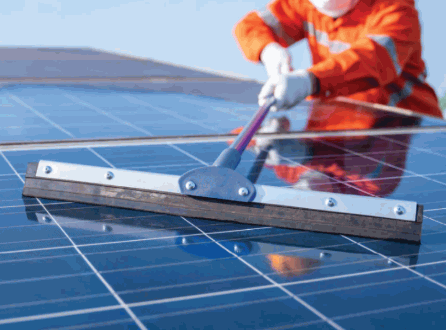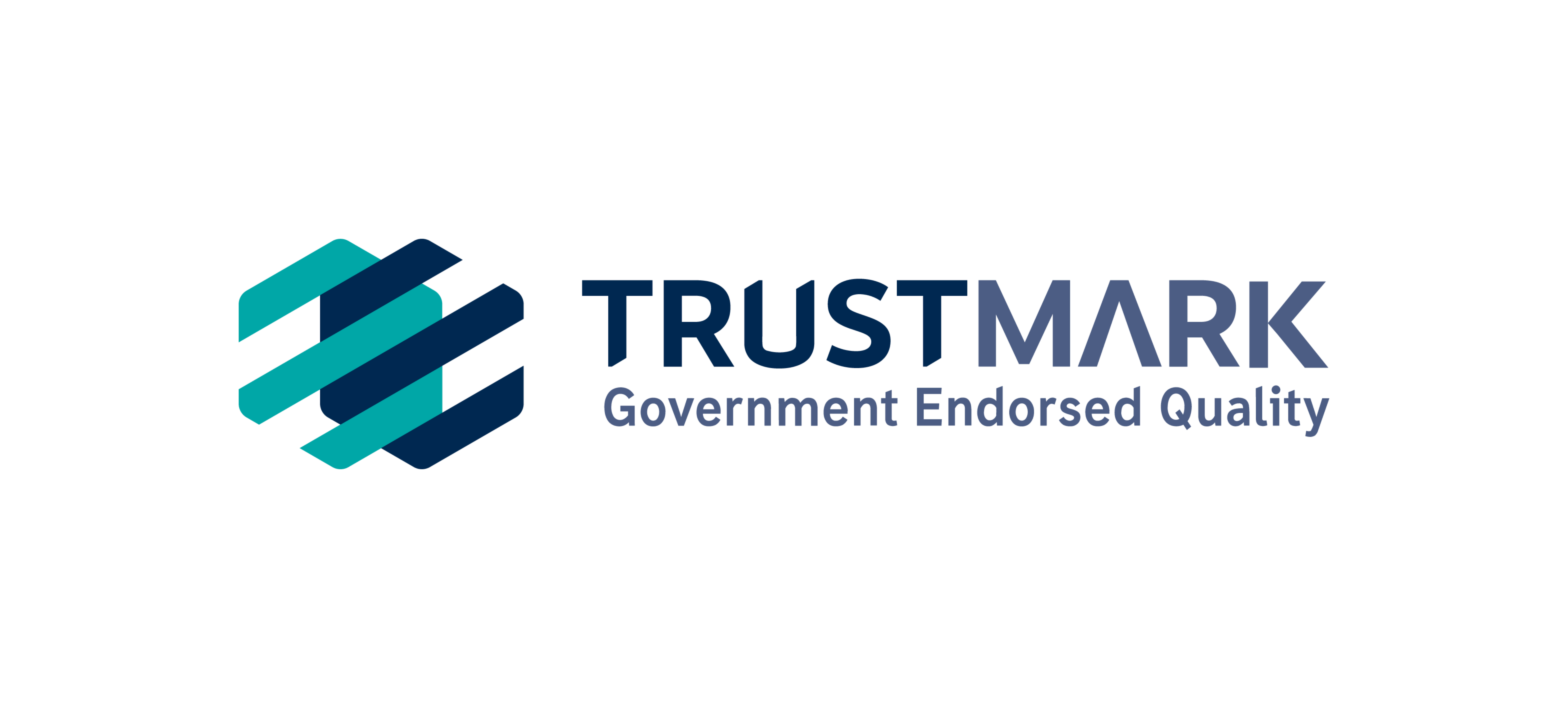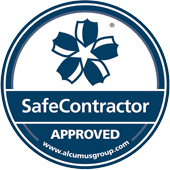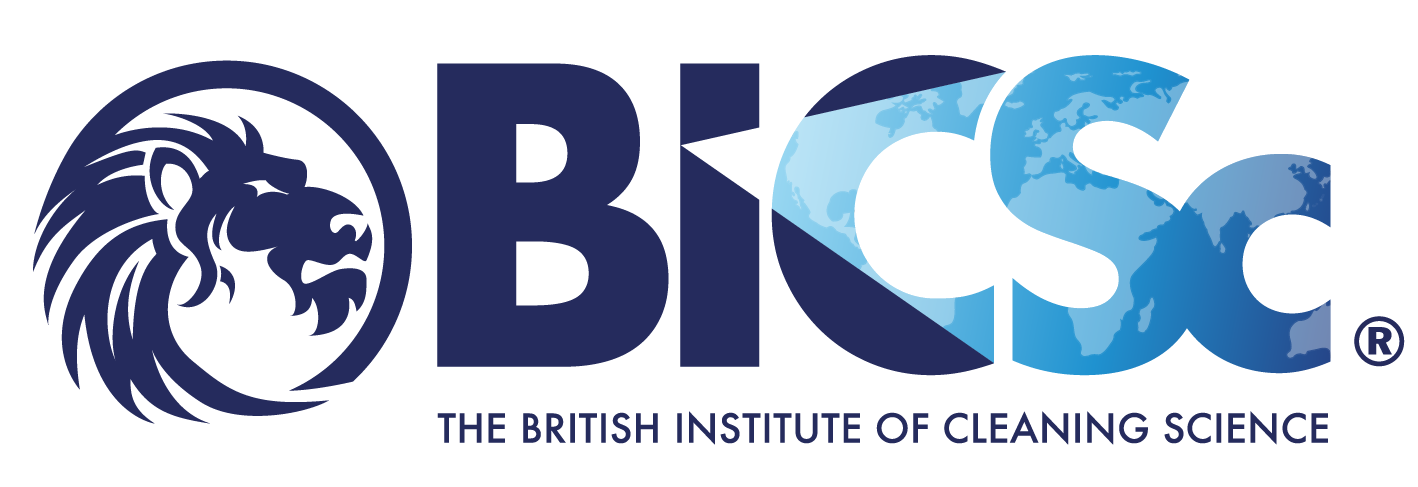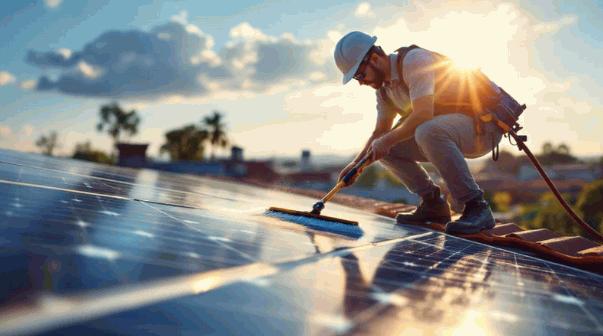
Solar panels are now a common site right across the UK, whether mounted on roofs and walls or situated in ground arrays. They're an excellent tool for tackling climate change and limiting our environmental impact, with many models now lasting for 30 years or more.
However, dirty solar panels can be a problem. Over time, dust, grime, algae, moss and bird droppings can accumulate, reducing efficiency and potentially damaging the panels.
The obvious answer is to clean solar panels when they become dirty, but how do you do this correctly and safely? The last thing you need is to cause further damage, and few people want to take unnecessary risks by climbing onto their roofs armed with cleaning equipment!
In this Roof Clean Spray Team blog, we'll uncover the best - and safest - methods of cleaning solar panels to ensure that you are getting the most out of your array.
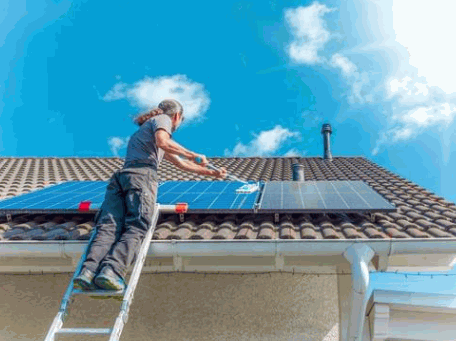
It's likely that your array has a monitoring system, and it's wise to use this to check for any dip in energy production. Obviously, performance will vary due to weather conditions, but you're looking for a steady decrease that tells you something is up. Get into the habit of making a note of how much energy your solar array produces and watch out for a decline in output.
If you don't have this facility, it may be worth investing in one, as it's a handy way to check that all is well with your solar panels.
This might seem obvious, but the best way to see if you need to clean your solar panels is to take a look at them!
However, this can be easier said than done if you have roof-mounted panels; not many homeowners will be keen to climb up on the roof to check for dirty solar panels.
Even so, a physical inspection is simply the best way to tell if there's a layer of grime affecting panel efficiency. This also allows you to check the fittings and see if birds have nested around the mounts (a more common problem than you might think!).
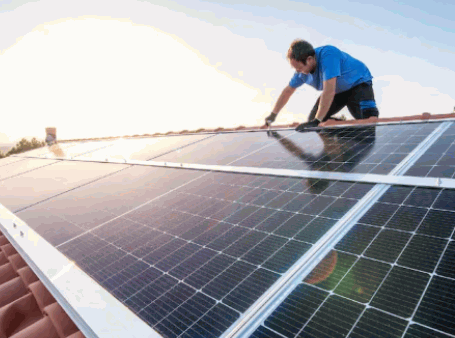
Although we briefly mentioned this right at the start, it's important to understand why you should keep your solar panels clean.
Here's a fact that might interest you: solar panels covered in dirt, dust and bird droppings can see a decrease in power output of as much as 25%!
That means the amount of energy delivered to your home (or business) will drop by a quarter.
In addition, muck and grime can result in other problems, such as:
This phenomenon occurs when one area of the panel is shaded, leading to an imbalance in power output. Heavily soiled panels can cause this, and it can lead to solar cells acting as if they are consuming energy instead of producing it!
Bird fouling plays a big role in this, but it's by no means the only culprit, especially in winter when falling leaves become stuck to the panels. Moss, lichen and algae also contribute to this problem.
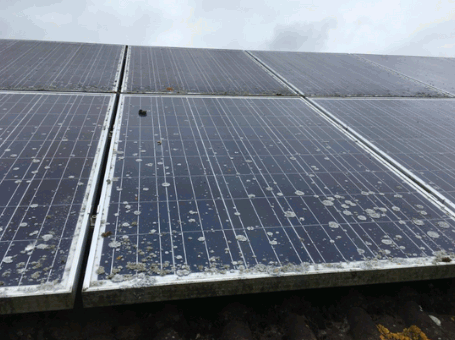
Bird droppings are highly acidic, and this can corrode metal fixtures and wiring, leading to loose and ineffective panels. This is more likely to be a problem in urban and coastal areas with large populations of sea birds and pigeons.
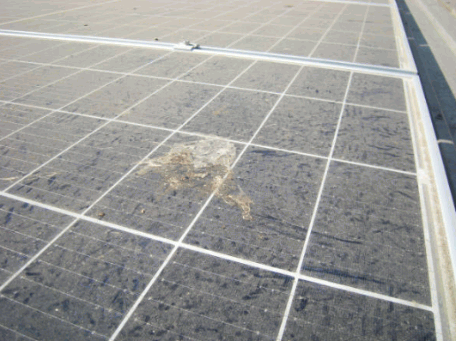
Accumulated nesting material and other debris situated near the panel's wiring is a serious fire risk, especially if the wiring has been corroded. Sparks from compromised wiring could potentially ignite dry nesting materials on a hot day, putting your entire array at risk - not to mention your home and the precious lives within it!
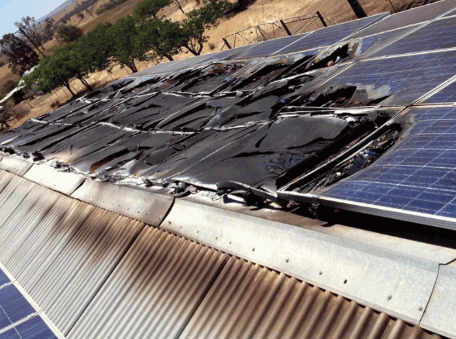
If left too long, bird poop can etch the panel surface, leaving a permanent mark even when it's cleaned off. While this might not seem like a problem, it can degrade the surface and obscure the light stream from reaching the solar cells. Again, this leads to a loss of efficiency.
So, it's clear that having your solar panels cleaned is extremely important, not just to ensure optimal performance, but also as a health and safety precaution.
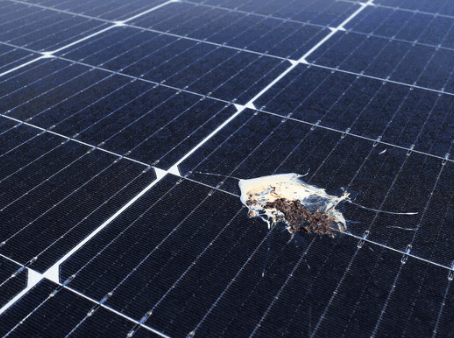
Now we know how important it is to clean your solar panels, we'll explore a few of the cleaning methods that our experts use at the Roof Clean Spray Team...
Using a non-abrasive, soft-bristle brush we gently remove dirt and debris from the panel surface without causing scratches or damage to the anti-reflective coating. This approach is ideal for delicate solar panel materials.
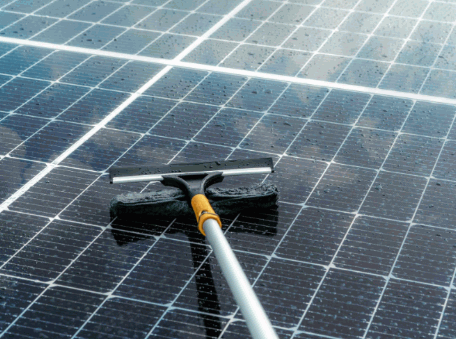
To prevent water spots and streaks, we use purified water through water-fed poles. The deionised water effectively lifts dirt and grime without the need for harsh chemicals, ensuring a spotless, streak-free finish that doesn’t compromise panel integrity.
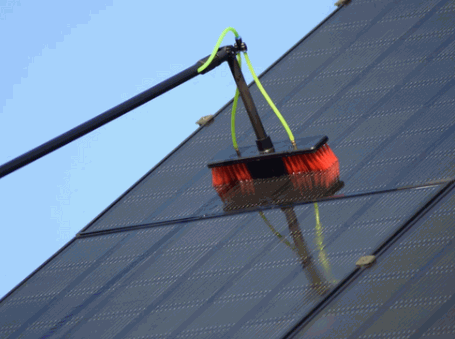
For more stubborn deposits, such as moss or lichen, we use low-pressure washers specifically calibrated to protect solar panels. This method ensures thorough cleaning while avoiding damage to seals and electrical components. During this process, we may use environmentally friendly cleaning agents
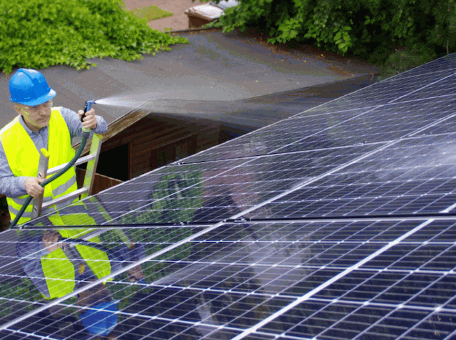
For heavily soiled areas or sensitive installations, our team uses microfibre cloths and appropriate cleaning solutions to target tough spots and stains, such as bird fouling, without harming the surface.
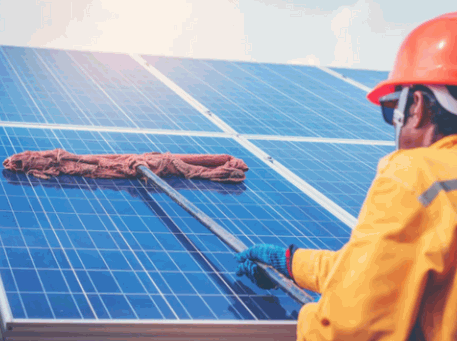
Some of these methods will obviously require working on your roof, and our team is trained to work safely at heights, adhering to all UK health and safety regulations. We always use appropriate safety equipment and techniques to protect both our staff and your property.
To keep your solar panel system generating electricity efficiently and at optimum levels, we recommend having it cleaned at least once or twice a year, as a general rule.
However, it depends on your location, the local environment and the levels of air pollution in your area. For example, if you are in a coastal region, your own particular solar panels may be coated with salt crystals from the spray. If it's not cleaned off, this can damage and corrode the surface as well as the fixtures.
Also, if there are trees nearby - especially with overhanging branches encroaching on your roof space - then your panels may be affected by dead leaves and other dirt. Trees also attract birds, leading to 'deposits' on the panels. Because of this, panel efficiency may be affected, so your panels will need more frequent cleaning.
Most modern solar panels in the UK (those made in the last five years or so) are largely designed to be self-cleaning to an extent, even in harsh environments. This means they have a hydrophobic coating applied during manufacture, and this actively repels water droplets that contain dirt and dust, so your panels stay clean for longer.
While this might help to an extent, it's still worth checking your solar panels once in a while, especially if you are in a coastal or urban area, or your region is prone to bad weather conditions.
Essentially, regular cleaning is advisable, wherever you are located, but as for the frequency, that's up to you! All we'll say is that you know the facts, and Roof Clean Spray Team is here when you need us.
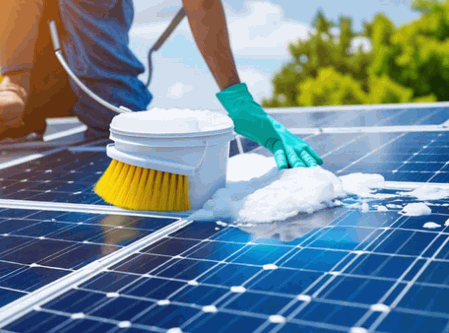
If you want to clean solar panels yourself, you need to be very careful which methods you use.
Here are some pointers to help you out:
Before we move on, we need to stress the importance of putting your safety first:
Yes, we already mentioned using a harness and stabilising the ladder (scaffolding would be OTT, and a little impractical, as would a cherry picker!), but we can't highlight this enough - always use the right equipment for the job and take health and safety seriously when cleaning solar panels.
If you are in any doubt at all, or if your roof has a particularly steep slope or complex angles, then please consider asking BRANDNAME's experts to take on the job for you. We have the tools, skills, training and expertise to do this safely and efficiently.
Besides, solar panel cleaning can be a tedious, messy and time-consuming task, and who needs the hassle?
If you want to take advantage of our cleaning services, you can expect to pay around £150 for an average-sized house array.
This is based on a rate of between £5 and £15 per panel, depending on the complexity of the roof space and any accessibility issues.
When you consider the long-term benefits - such as the extended lifespan of the panels and the increased efficiency- this makes solar panel cleaning a wise investment!
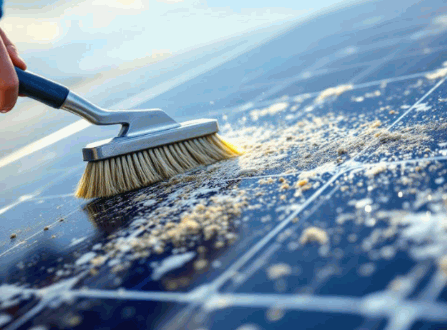
We've told you how we clean solar panels at the Roof Clean Spray Team, and we've looked at what you can do if you want to clean them yourself, as well as things you shouldn't do.
One fact remains clear throughout all this: solar panel cleaning is essential to ensure maximum energy output.
While the drop in solar panel efficiency might be negligible at first, this will increase as time goes by and the panels become dirtier. Without adequate cleaning, they will underperform by up to 25%, and could eventually become damaged by the accumulation of muck and organic growth. As they age, performance tends to drop naturally, so the overall effect will be felt even more.
If you've invested in solar panels, it doesn't make sense to risk this by neglecting essential maintenance, including regular cleaning sessions.
So, whether you're up for some DIY or you'd rather leave it to the Roof Clean Spray Team experts, it's a very good idea to make sure your solar panels are squeaky clean!
